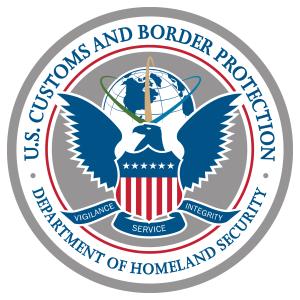
WASHINGTON — U.S. Customs and Border Protection today released monthly operational statistics for October 2023, which show an overall decrease in migrant encounters along the southwest border, even as we continue to see the largest displacement of individuals globally since World War II. CBP Monthly reporting can be viewed online.
“In conjunction with our resumption of removal flights to Venezuela consistent with delivering consequences for those who cross the border unlawfully, CBP saw a 65 percent decrease in southwest border encounters of Venezuelans in the second half of October, compared to the second half of September. In October, CBP also saw an overall decrease of 14 percent between ports of entry, as well as an overall decrease of family units. We continue to enhance our border security posture and remain vigilant,” said Troy A. Miller, Senior Official Performing the Duties of the Commissioner. “CBP’s narcotics seizures in October highlight our work on the frontline in the fight against fentanyl and other dangerous substances entering the United States – but we need more resources to sustain and increase these efforts. The President’s supplemental budget request is critical to funding the frontline, and would provide much-needed personnel, resources, and technology to go after transnational criminal organizations, enhance border security – including the enforcement of consequences for those who break the law – and support state and local partners, all to keep Americans safe.”
Below are key operational statistics for CBP’s primary mission areas in October 2023. View all CBP statistics online.
Ensuring Border Security and Managing Migration
CBP remains steadfast in enforcing our immigration laws: increasing operational capabilities as needed, deploying new technology, and fielding additional resources to support our border security mission and to act as a force multiplier for our agents and officers on the ground. Recognizing that transnational criminal organizations continue to prey on vulnerable migrants, we are actively working to combat the spread of disinformation by smugglers. We are working closely with foreign governments, including in particular our partners in Mexico, to ensure a regional approach to addressing and curtailing irregular migration.
CBP is processing all noncitizens under Title 8 immigration authorities, and placing noncitizens who cross the border unlawfully into Expedited Removal or Section 240 Removal Proceedings. Noncitizens who cross between the ports of entry or who present themselves at a port of entry without making a CBP One™ appointment and have traveled through another country without claiming asylum are subject to the Circumvention of Lawful Pathways rule. This rule presumes asylum ineligibility for those who fail to use lawful pathways, with certain exceptions.
Individuals and families without a legal basis to remain in the U.S. are subject to removal pursuant to CBP’s longstanding Title 8 authorities. These individuals and families are subject to a minimum five-year bar on reapplying for admission and potential criminal prosecution if they subsequently re-enter without authorization. Through coordination, planning, and execution that includes U.S. Immigration and Customs Enforcement, since May 2023 and through October 31st, DHS removed or returned over 355,000 individuals, including more than 54,000 individual family members. DHS has removed or returned more individual family members in the last six months than in any previous full fiscal year.
In October 2023, the U.S. Border Patrol recorded 188,778 encounters between ports of entry along the southwest border, a decrease of 14% from September 2023. CBP’s total encounters along the southwest border in October were 240,988, a decrease of 11% from September 2023.
Among CBP’s 240,988 total southwest border encounters in October 2023, encounters of family unit individuals decreased by 14% and encounters of unaccompanied children decreased by 16% from September. Additionally, encounters with single adults also decreased by 7%.
On October 5, DHS announced that the United States would begin to return Venezuelans back to their home country. On October 18, DHS conducted the first removal flight to Venezuela and flights have been taking place regularly since then. CBP encounters of Venezuelans at the southwest border dropped 65% from October 15-30, compared to September 15-30.
CBP’s message for anyone who is thinking of entering the United States illegally along the southwest border is simple: don’t do it. When noncitizens cross the border unlawfully, they put their lives in peril. The U.S. Border Patrol has undertaken significant efforts in recent years to expand capacity to aid and rescue individuals in distress. To prevent the loss of life, CBP initiated a Missing Migrant Program in 2017 that locates noncitizens reported missing, rescues individuals in distress, and reunifies decedents’ remains with their families in the border region. In October 2023, the U.S. Border Patrol conducted 1,198 rescues.
View more migration statistics and rescues statistics.
CBP One™ App
The CBP One™ mobile application remains a key component of DHS’s efforts to incentivize noncitizens to use lawful, safe, and orderly pathways and disincentivize attempts to cross between ports of entry. In October, CBP processed more than 44,000 individuals at ports of entry utilizing advanced information submitted in CBP One™.
Since the appointment scheduling function in CBP One™ was introduced in January 2023 through the end of October, nearly 324,000 individuals have successfully scheduled appointments to present at a port of entry using CBP One™. The top nationalities who have scheduled appointments are Venezuelan, Mexican, and Haitian.
A percentage of daily available appointments are allocated to the earliest registered CBP One™ profiles, so noncitizens who have been trying to obtain appointments for the longest time will be prioritized. CBP is continually monitoring and evaluating the application to ensure its functionality and guard against bad actors.
Safeguarding Communities by Interdicting Narcotics and Dangerous Drugs
As the largest law enforcement agency in the United States, CBP is uniquely positioned to detect, identify, and seize illicit drugs before they enter our communities. CBP’s combination of interdiction and intelligence capabilities, complemented by its border search authorities, scientific services, non-intrusive inspection equipment, and canine detection teams, places it at the forefront of the U.S. government’s efforts to combat fentanyl and other dangerous drugs.
In October CBP released an updated, comprehensive strategy to continue to fight fentanyl and synthetic drugs. The CBP Strategy to Combat Fentanyl and Other Synthetic Drugs drives a whole-of-CBP approach that feeds into the work taking place all across DHS as we lead interagency efforts against illicit synthetic narcotics. This 2023 strategy aligns resources, enhances partnerships, and builds on the successful enforcement intelligence and data-driven operations CBP has executed this year, while leveraging CBP’s vast expertise and data holdings to disrupt the transnational criminal organizations responsible for the illicit production, distribution, and trafficking of illicit fentanyl, its analogues, and other synthetic drugs in the United States.
As an immediate first step in implementing the updated fentanyl strategy, CBP recently announced Operation Apollo: a southern California counter-fentanyl joint operation, with a focus on intelligence collection. The CBP-led operation will concentrate law enforcement efforts on disrupting drug and chemical supply, collecting and sharing intelligence, and leveraging valuable partnerships. Participating agencies, led by CBP, include state, local, and tribal law enforcement agencies as well as federal agencies from within DHS including Homeland Security Investigations, and other federal agencies that have a nexus to narcotics trafficking as well as the intelligence community.
Following the success of Operation Blue Lotus earlier this year, Department of Homeland Security announced the next phase of its surge campaign to target and prevent fentanyl from entering the United States. Operation Artemis, led by CBP, leveraged intelligence and investigative information derived from Blue Lotus to target drug traffickers’ fentanyl supply chains and interdict items required in the production of fentanyl. In four months of operation, Operation Artemis led to over 900 seizures, including over 13,000 pounds of fentanyl precursor chemicals, over 2,590 pounds of non-fentanyl precursor chemicals, 142 pill presses and 325 pill molds, more than 270 pounds of fentanyl pills and powder, and more than 210 pounds of Xylazine, more than 1,160 pounds of methamphetamine, and over 11,230 pounds of other finished synthetic drugs.
CBP seized 1,661 pounds of fentanyl in October 2023. In FY 2023, CBP seized more than 27,000 pounds of fentanyl, compared with over 14,600 pounds in FY 2022. CBP’s fentanyl seizures in FY 2023 increased more than 860% compared to FY 2019.
View more drug seizure statistics.
Facilitating Lawful Trade and Travel and Promoting Economic Security
As international travel rises, CBP continues to leverage technology to streamline efficiency and increase security at air and land ports of entry. Travelers arriving by air into the United States increased 17% from October 2022 to October 2023, and pedestrians arriving by land at ports of entry increased 8.5% over the same period. Passenger vehicles processed at ports of entry increased 2.6% from October 2022 to October 2023.
CBP works diligently with the trade community and port operators to ensure that merchandise is cleared as efficiently as possible and to strengthen international supply chains and improve border security. In October 2023, CBP processed more than $2.9 million entry summaries valued at more than $289 billion. CBP identified nearly $6.8 billion of duties to be collected by the U.S. government. In October, trade via the maritime environment accounted for 40% of the total import value, followed by air, truck, and rail.
View more travel statistics, and trade statistics.
CHNV Parole Processes
Building upon the successful parole process established for Venezuelans one year ago in October 2022, the parole processes for nationals of Cuba, Haiti, and Nicaragua announced by President Biden on January 5, 2023, have significantly reduced irregular migration and denied smugglers the opportunity to exploit individuals who have instead benefited from the expansion of safe, orderly, and humane pathways.
Through the end of October 2023, 269,744 Cubans, Haitians, Nicaraguans, and Venezuelans arrived lawfully and were granted parole under the parole processes. Specifically, 57,243 Cubans, 107,697 Haitians, 48,840 Nicaraguans, and 77,021 Venezuelans were vetted and authorized for travel; and 55,568 Cubans, 99,110 Haitians, 43,267 Nicaraguans, and 71,801 Venezuelans arrived and were granted parole.
Protecting Consumers and Eradicating Forced Labor from Supply Chains
CBP continues to lead U.S. government efforts to eliminate goods from the supply chain made with forced labor from the Xinjiang Uyghur Autonomous Region of China. In October, CBP stopped 504 shipments valued at more than $199 million for further examination based on the suspected use of forced labor.
Intellectual property rights violations continue to put America’s innovation economy at risk. Counterfeit and pirated goods threaten the competitiveness of U.S. businesses, the livelihoods of American workers, and the health and safety of consumers. In October, CBP seized 1,499 shipments that contained counterfeit goods valued at more than $160 million if the items had been genuine.
View more UFLPA enforcement statistics, and intellectual property rights enforcement statistics.
Defending our Nation’s Agricultural System
Through targeting, detection, and interception, CBP agriculture specialists work to prevent threats from entering the United States.
CBP issued 5,803 emergency action notifications for restricted and prohibited plant and animal products entering the United States in October 2023. CBP conducted 94,931 positive passenger inspections and issued 630 civil penalties and/or violations to the traveling public for failing to declare prohibited agriculture items.
View more agricultural enforcement statistics.






